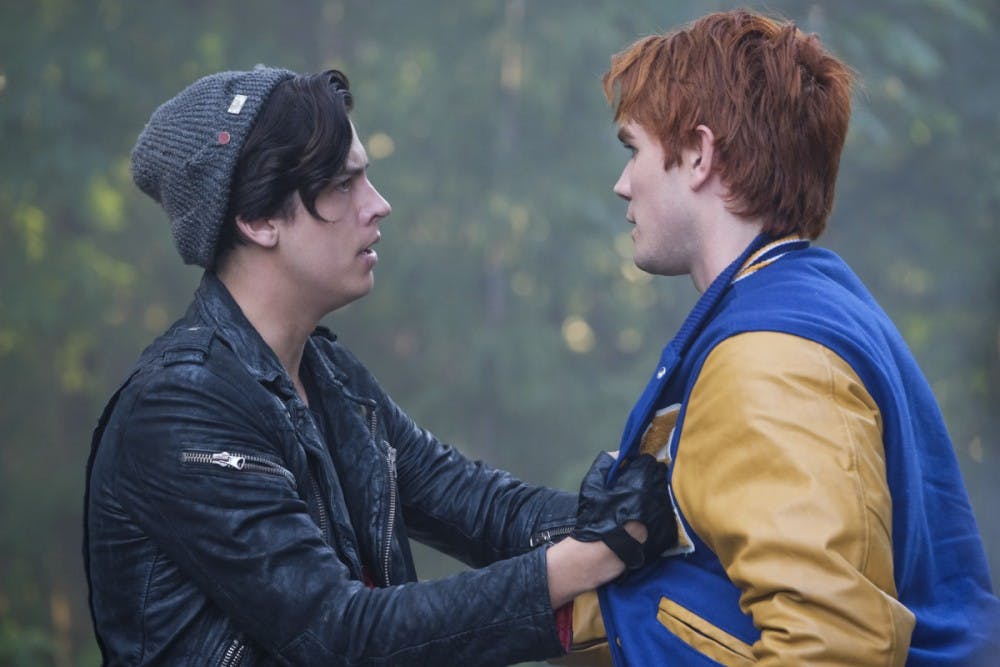Riverdale, in its creation, is something of an anomaly. Show creator Roberto Aguirre–Sacasa looked at the unassuming world of the Archie Comics and decided to make a murder–mystery TV show for modern adolescents complete with sex, death, and drama. Its first season fared reasonably well, and for good reason: it had a coherent plot and a somewhat–contained story, looking at the murder of a local student. On Rotten Tomatoes, it received an 88% Fresh rating, which is a solid grade. It had its charm in a supposedly self–aware look at high schools, which seemed to be comically overdone with its mean–girl tropes and its jock with a heart of gold.
Its social media response, similarly, was generally positive. Jughead (Cole Sprouse) and his “I’m weird” monologue garnered some rightful mocking, but it was mostly playful. Riverdale is ridiculous but in a fun way. The show is directed at girls between the ages of 12 and 18, and perhaps it’s a little trashy, but self–indulgence is something that women this age are rarely given.
Of course, things quickly fell apart from there.
Season two lost the common thread that held season one together, plots became trite, and the show firmly placed itself as camp without seeming aware of it. Was it still parodying itself or was it genuine? How far are we supposed to suspend our disbelief? And, with all of that, why is it still popular going into season three?
One clear reason is that Riverdale is, for the current mass of middle and high schoolers, what Pretty Little Liars was for college students now. It’s a romp into a melodramatic world with sex and death that excites the viewers without being a horror piece. it is firmly in the teen–drama genre, which is its allure. It likely gives younger people today that thrill that I felt whenever I watched a show that talked about sex plainly when it seemed taboo—a feeling of maturity, excitement, and giddiness. With that comes a slew of issues that I can only recognize now: Riverdale over–sexualizes high schoolers, romanticizes a relationship between a teenager and his teacher, and portrays the sixteen–year–old Betty Cooper (Lili Reinhart) as having some sexy, dominatrix dark side. But young people watching this show don’t see that—they see the drama and are excited by it, which is the point.
Riverdale’s draw also comes, in part, from its cast. It is unfair to say that young women are only watching the show because its actors are attractive, but it is certainly a part of it. Cole Sprouse tapped into nostalgia factors of many with his The Suite Life of Zack and Cody history and to show for it has 9.05 million followers on Twitter. Additionally comes the intriguing relationships within the cast—Cole Sprouse is currently dating Lili Reinhart (with whom he shares an on–screen relationship), and just recently Camila Mendes (who plays Veronica) revealed her romance with Charles Melton (who portrays the minor character Reggie). There is drama both on– and off–screen which is interesting and allows for many, many, many Buzzfeed articles about it; it makes the actors seem human. One can fangirl over both the characters and their actors, which creates a constant fodder for content.
Most importantly, however, is that by now, it has swept all of social media. Instagram is full of clips from the show reposted again and again by various accounts. With this new age of re–sharing content, shows garner popularity that is so overwhelming that it’s impossible to go a day without seeing some Riverdale–related post. While this has happened with other pieces of media (namely Netflix’s Stranger Things), Riverdale, with its targeted audience of young girls who frequently use apps such as Instagram and Snapchat, takes the cake. It has created a culture of repeated sharing and commenting, which thus becomes a cycle of relentless popularity.
Riverdale is riding on a wave of fame. It has many, many issues (it uses conversion therapy as a plot point, it has a teenage girl do a striptease, and it seriously queer–baited its audience in trailers), but most of them will go ignored. The show was released to an audience in a very specific moment of social media usage which benefited both its actors and its followers to a culture of obsessive sharing and posting. Riverdale will likely lose its popularity eventually, and those young women watching it will realize its deep–set flaws, but until then, it will remain on top: a staple of young teenagers watching a dark, high–school–targeted show for the first time with all the thrill, sex, and drama of something for adults, making Riverdale delightfully taboo.

